Kenichi Arai
Subjective intelligibility of speech sounds enhanced by ideal ratio mask via crowdsourced remote experiments with effective data screening
Mar 31, 2022
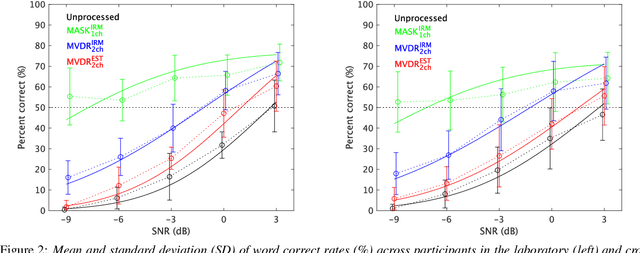

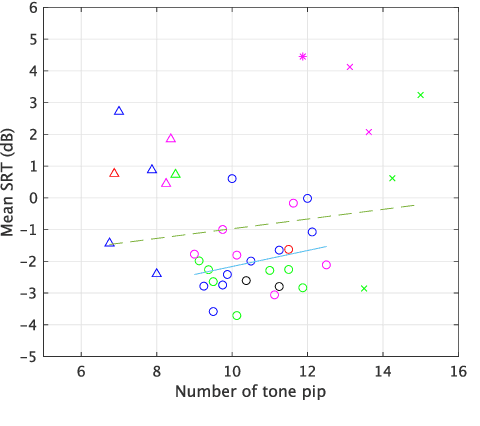
Abstract:It is essential to perform speech intelligibility (SI) experiments with human listeners to evaluate the effectiveness of objective intelligibility measures. Recently crowdsourced remote testing has become popular to collect a massive amount and variety of data with relatively small cost and in short time. However, careful data screening is essential for attaining reliable SI data. We compared the results of laboratory and crowdsourced remote experiments to establish an effective data screening technique. We evaluated the SI of noisy speech sounds enhanced by a single-channel ideal ratio mask (IRM) and multi-channel mask-based beamformers. The results demonstrated that the SI scores were improved by these enhancement methods. In particular, the IRM-enhanced sounds were much better than the unprocessed and other enhanced sounds, indicating IRM enhancement may give the upper limit of speech enhancement performance. Moreover, tone pip tests, for which participants were asked to report the number of audible tone pips, reduced the variability of crowdsourced remote results so that the laboratory results became similar. Tone pip tests could be useful for future crowdsourced experiments because of their simplicity and effectiveness for data screening.
Comparison of remote experiments using crowdsourcing and laboratory experiments on speech intelligibility
Apr 17, 2021
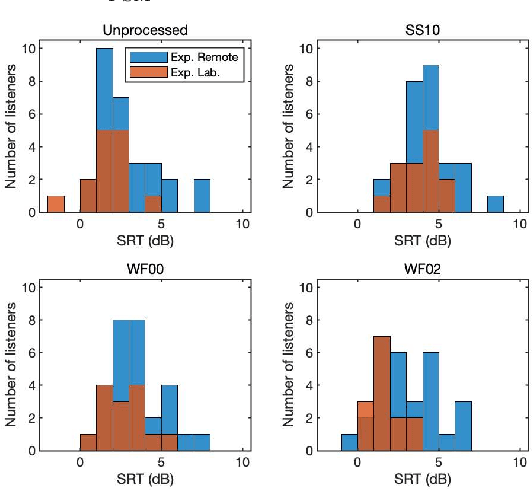
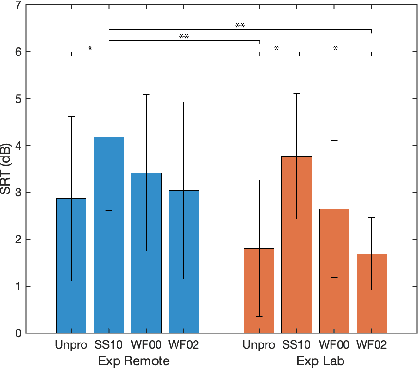
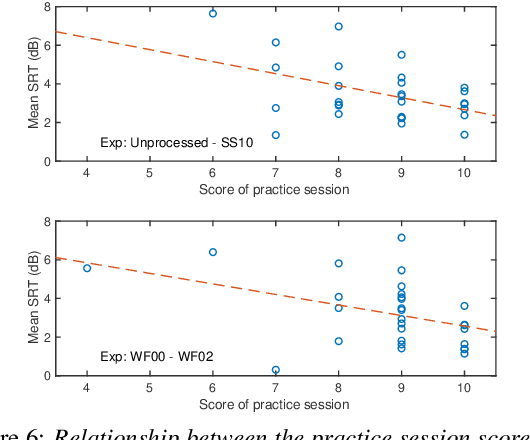
Abstract:Many subjective experiments have been performed to develop objective speech intelligibility measures, but the novel coronavirus outbreak has made it very difficult to conduct experiments in a laboratory. One solution is to perform remote testing using crowdsourcing; however, because we cannot control the listening conditions, it is unclear whether the results are entirely reliable. In this study, we compared speech intelligibility scores obtained in remote and laboratory experiments. The results showed that the mean and standard deviation (SD) of the remote experiments' speech reception threshold (SRT) were higher than those of the laboratory experiments. However, the variance in the SRTs across the speech-enhancement conditions revealed similarities, implying that remote testing results may be as useful as laboratory experiments to develop an objective measure. We also show that the practice session scores correlate with the SRT values. This is a priori information before performing the main tests and would be useful for data screening to reduce the variability of the SRT distribution.
 Add to Chrome
Add to Chrome Add to Firefox
Add to Firefox Add to Edge
Add to Edge